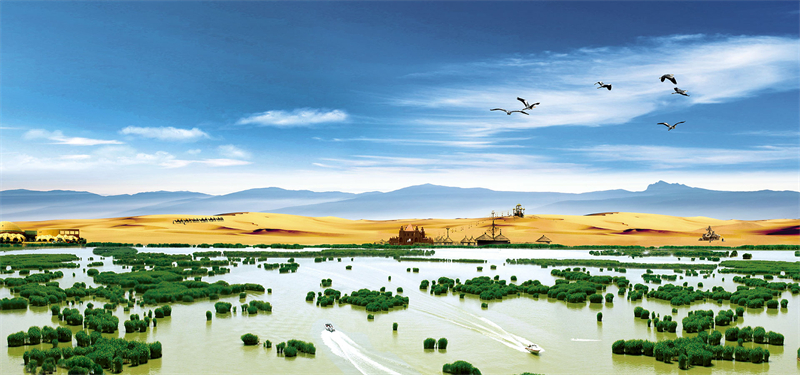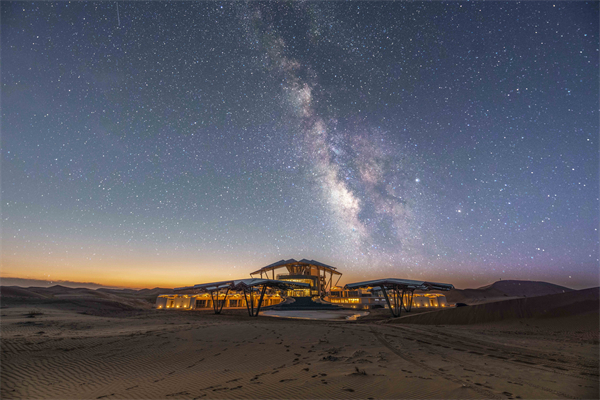- ~
- ~
- ~
- ~
- ~
The Ningxia Hui Autonomous Region has lots of cultural and tourism resources. It is known for its attractions, such as the "Three Mountains and One River" (Helan Mountains, Liupan Mountain, Luoshan Mountain, Yellow River), "Two Sands and One Mausoleum" (Shahu Lake, Shapotou, Western Xia Mausoleum), and "Two Forts and One Great Wall" (Jiangtai Fort, Zhenbei Fort, Great Wall). These spots showcase the region's rich heritage and unique landscapes.
Ningxia is home to the lengthy Qin and Ming sections of the Great Wall, which experts recognize as the "Great Wall Museum of China".
Shahu Lake, located just 56 kilometers from Yinchuan city, has been designated as a five-A level tourist attraction.
The efforts of Shapotou in controlling desertification have received international recognition, and the site has been honored with the title of "Global Top 500 Environmental Protection Sites" by the United Nations.
The Xumishan Grottoes are considered one of China's most important repositories of grotto art.
Its attractions such as Huaxia Western Film Studios, Helan Mountains Rock Carvings, Western Xia Mausoleum, Qingtongxia Bird Island, Shuidonggou Site are highly renowned both domestically and internationally.

Shahu Lake
Ningxia Mingcui Lake National Wetland Park, Yuehai Wetland Park, and the Qingtongxia Yellow River Eco-park provide relaxing places for vacationing visitors.
In addition to its natural attractions, Ningxia also boasts diverse revolution-related and cultural resources. Over 200 politicians, military strategists, leaders, and generals have lived and fought in Ningxia, making it a place of historical significance.
With the construction of the Yellow River Ecological Economic Belt, Ningxia is facing new development opportunities.

Starry night in the desert
Ningxia has the strongest accessibility, highest safety factor, and most convenient transportation among China's desert-themed scenic areas. Its deserts are complemented by nearby rivers, lakes, and grasslands, providing a unique combination of sand and water.
Ningxia is home to several cultural institutions such as Ningxia Museum, Guyuan Museum, and Ningxia Science and Technology Museum, which showcase the unique culture of the region.
京ICP备13028878号-6





